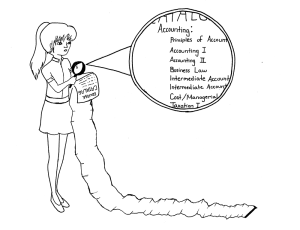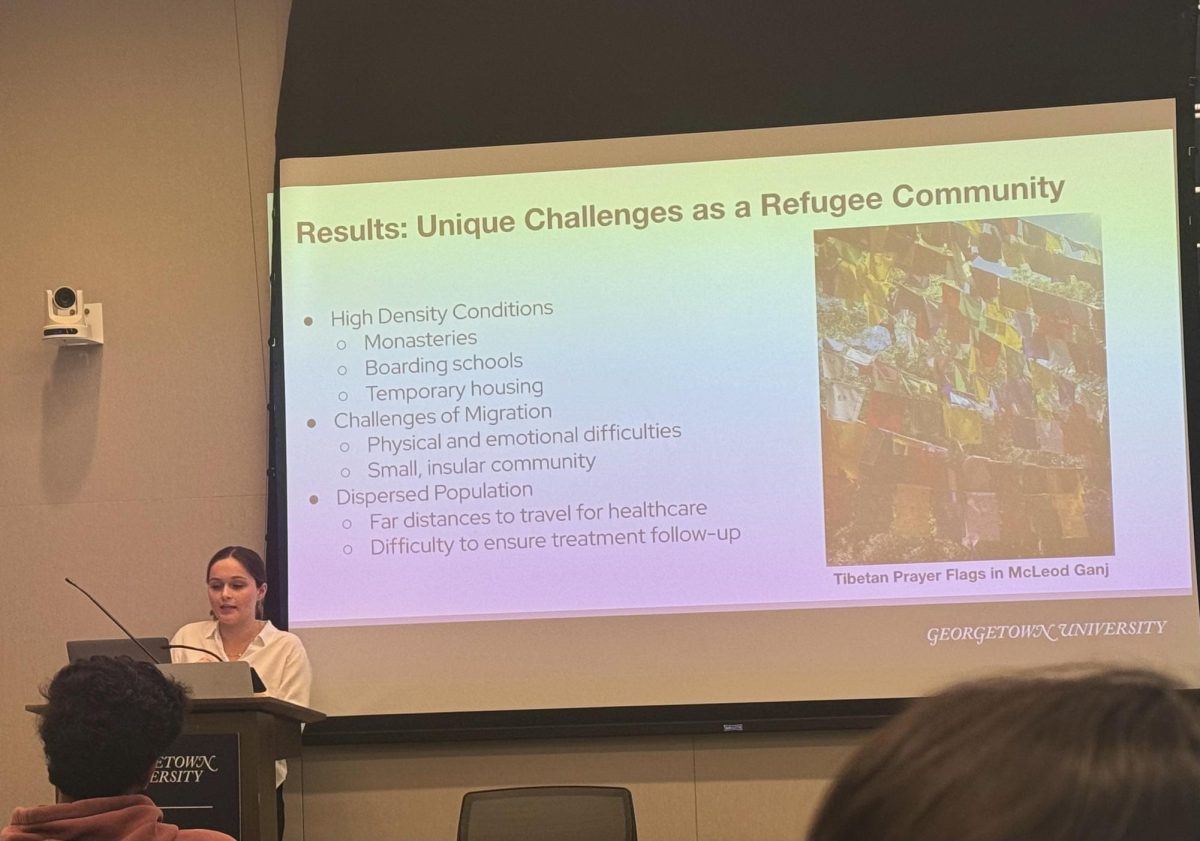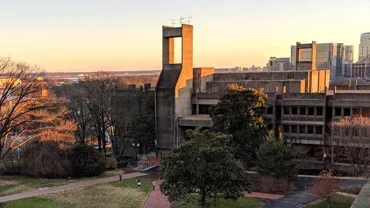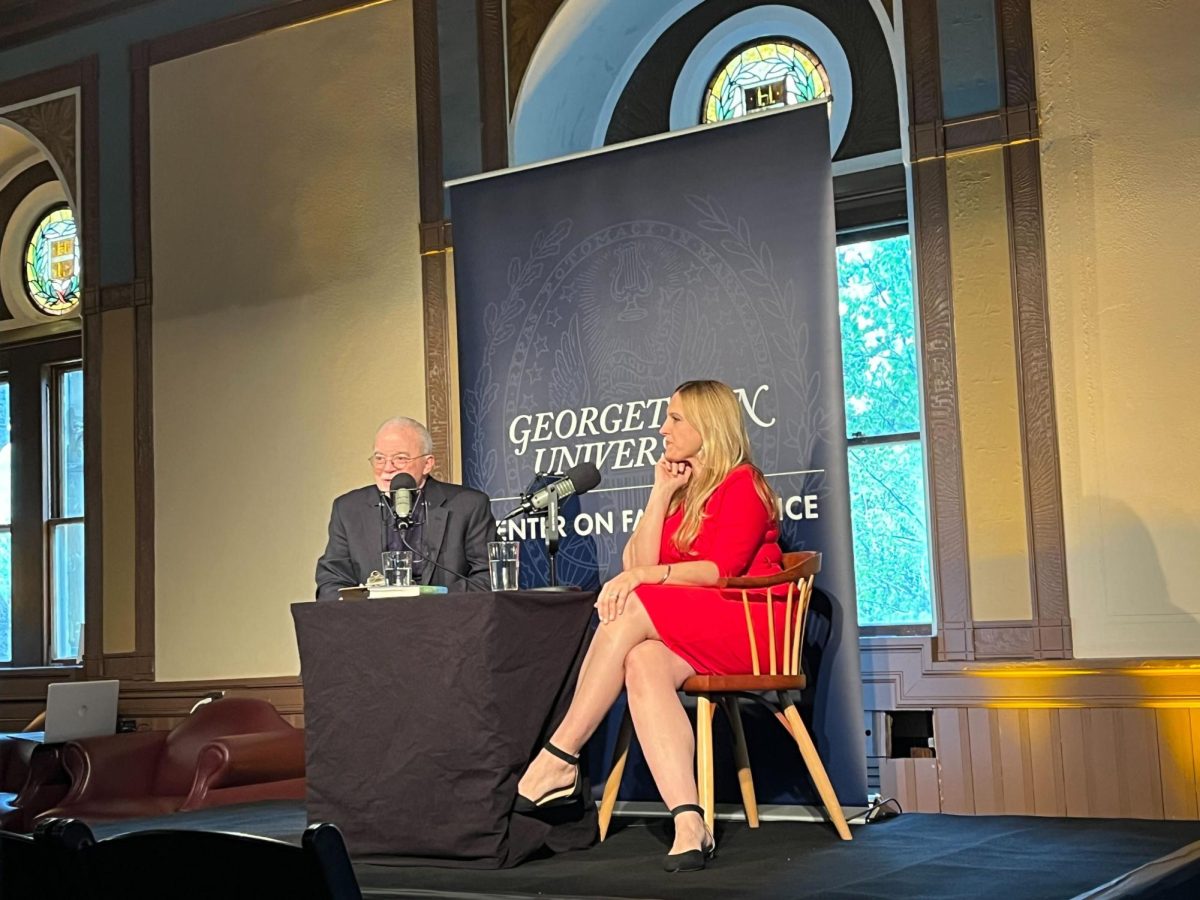 Many of you are starting your first year as an undergraduate here at Georgetown. Welcome. By now, you know what “Hoya Saxa” means and have figured out how to navigate our modest campus. Georgetown might not be enormous — and yes, a few of our smaller classrooms do feel a bit like ones you left behind in high school. But there are critical differences between academic life in high school and academic life at a research university. Having spent some 15 years at three different research universities, I’d like to offer a few thoughts on the transition.
Many of you are starting your first year as an undergraduate here at Georgetown. Welcome. By now, you know what “Hoya Saxa” means and have figured out how to navigate our modest campus. Georgetown might not be enormous — and yes, a few of our smaller classrooms do feel a bit like ones you left behind in high school. But there are critical differences between academic life in high school and academic life at a research university. Having spent some 15 years at three different research universities, I’d like to offer a few thoughts on the transition.
The first thing to understand is that research universities like Georgetown aren’t just a scaled-up version of a high school, and there are more differences than the fact that our sports teams get covered in Sports Illustrated. Research universities are organized differently, and students should make understanding this structure a top priority in their first few weeks on campus.
In my high school, for example, any study of literature would have been in the English department, whether it was Poe or Pushkin. I knew I liked literature, so when I got to college, I sought out a well-reputed class in the English department. It wasn’t until months later, over the winter holidays, that I got the chance to read the several hundred-page course catalog, and I realized that at my alma mater, literatures written in foreign languages were taught in language departments. Here at Georgetown, I probably would have made the same mistakes. I also discovered whole fields I had never encountered in high school, ranging from computer science to anthropology.
If I were starting again, I’d spend a lot more time reading — or now browsing online — the course catalog. The goal wouldn’t just be to find additional courses but also to get a better sense of how the fields are organized at the university level. If you choose to do this, don’t just read up in the fields you are most interested in. In fact, it’s probably most helpful to read the fields about which you know nothing. Spend time asking other students about their own areas of interest, the skills they develop and their driving curiosities.
High schools are frequently organized by topic area, while universities are organized partly based on different disciplinary toolkits. For instance, while you might be interested in animal physiology, you might also see value in developing the skill set of a computer scientist. You might not be religious but love theology.
Choosing courses at Georgetown also requires its own skill set. Good classes convey facts, certainly. But they also convey ways of thinking and learning about the world. More than specific facts, you are more likely to retain these ways of thinking and methods of problem solving. If you notice an instructor posing questions in a compelling way, pay attention and sign up for their courses for future semesters.
But figuring this all out will likely require asking a lot of questions. So whom to ask? Like all research universities, Georgetown is a busy place. That’s where your advisers, professors and deans come in. Harvard professor Richard Light has studied what makes for a successful college experience, and one of his main insights is that students who get to know their instructors have a richer college experience. He advises making it a goal to get to know one instructor per semester, which, thankfully, Georgetown’s small class sizes make feasible.
Getting to know an instructor might mean balancing big lecture classes with smaller seminars. It might mean thinking hard about a problem and then heading to office hours to ask about it. Or it might even mean asking a professor about his or her research, and then seeing if you can get involved in it. Now that you’ve unpacked your suitcases and figured out what a Hoya is, it’s time to figure out how academic life at Georgetown is set up, and then embark on your own academic explorations.
Daniel J. Hopkins is an associate professor in the Department of Government.




















